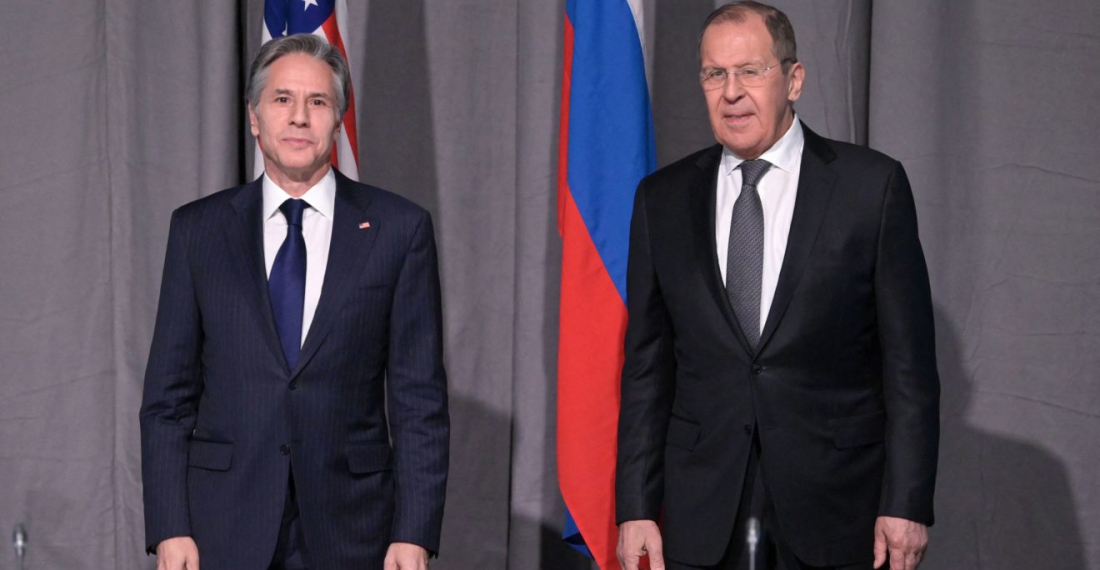US Secretary of State, Anthony Blinken, and Russian Foreign Minister Sergei Lavrov met on the margins of the annual Ministerial Council of the Organization for Security and Cooperation in Europe (OSCE) in Stockholm, Sweden, on Thursday (2 December). The situation around Ukraine and the continued tensions with Russia were high on the agenda.
The OSCE is holding its annual Ministerial Council meeting in the capital of this year's Chairmanship country, Sweden.
During the talks, Blinken reiterated the US position that a Russian invasion of Ukraine would be quickly answered, including with tough sanctions against Moscow. "The best way to avert the crisis is through diplomatic means and that is what I hope to discuss with Sergei", Blinken said ahead of the conversation.
Blinken stressed that both nations, Ukraine and Russia, should abide by the agreements set out in the 2015 Minsk Protocol agreement, which sought to end the war in the Donbas region of Ukraine. This includes removing heavy weapons along the frontline and the start of a dialogue between the Russian-supported separatists in eastern Ukraine and the Ukrainian government.
Lavrov said Russia also favours a diplomatic solution. "We do not want a conflict, as the president of Russia, Vladimir Putin has said", he reiterated. Earlier, Putin warned NATO against deploying its military forces and weapons in Ukraine, saying that this is a red line for Russia and would provoke a strong reaction.
On Wednesday (1 December), Putin also said that Moscow would seek Western guarantees to prevent further expansion of NATO eastwards and the deployment of its weapons near Russia's borders.
In recent months, Ukrainian and Western officials have been concerned that a Russian troop build-up near Ukraine could herald an invasion.
Speaking after the Blinken-Lavrov meeting, the spokesperson of the US State Department, Ned Price, said on record,
Secretary of State Antony J. Blinken met today with Russian Foreign Minister Sergey Lavrov in Stockholm on the margins of the OSCE Ministerial. Secretary Blinken addressed Russia’s aggression towards Ukraine, including its military movements near Ukraine’s borders. The Secretary reiterated the United States’ call for Russia to pull back its forces and return to a peacetime posture and to adhere to the Minsk agreements and a ceasefire in the Donbas. He underscored that the best path forward is diplomacy in conjunction with the full implementation of the Minsk agreements, a process the United States is willing and ready to support. Should Moscow choose the path of military escalation, the Secretary made clear that the United States and our allies are prepared to impose significant costs. The Secretary and the Foreign Minister noted the importance of continued coordination on issues in the bilateral relationship and where interests are aligned, including when it comes to blocking Iran’s pathways to a nuclear weapon. The two also discussed the Caucasus, and the Secretary welcomed the resumption of direct dialogue between the governments of Armenia and Azerbaijan. The Secretary also raised the unjust detentions of Paul Whelan and Trevor Reed and underscored the priority we attach to their prompt release.






